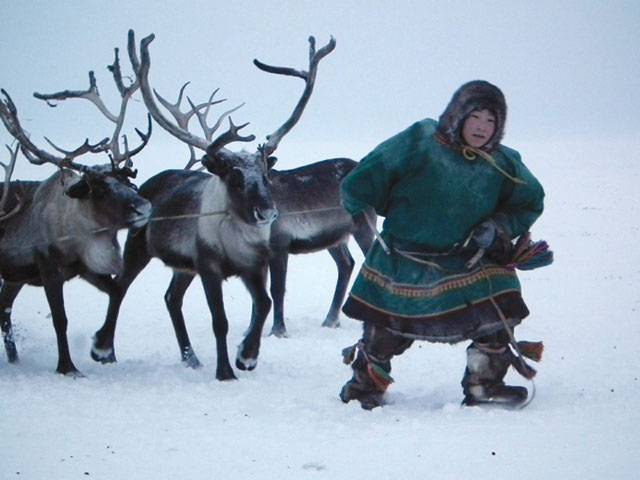HELSINKI - The loss of sea ice in the warming Arctic is threatening reindeer herding in northern Russia — the livelihood of one of the region’s last remaining nomad communities, researchers said Thursday.
Scientists from the Arctic Centre of the University of Lapland found that shrinking ice in western Siberia was likely responsible for two severe instances of the “rain on snow” phenomenon in 2006 and 2013 that led to tens of thousands of reindeer starving to death.
And if these freak years become more frequent as the Arctic warms, the nomad Yamal Nenets population — who have been herding reindeer for centuries — could lose their livelihood, the study warned.
“Rain on snow” happens when a sudden rise in temperature causes snow to turn to rain — but rather than melting the snow beneath, it freezes on top, creating a ice shell that stops animals from grazing.
Professor Bruce Forbes, head of the study group, told AFP the 2013 event was particularly “intense and catastrophic”, causing 61,000 — more than a fifth — of the Yamal Peninsula’s reindeer to starve to death.
“There was no way to go around (the ice) and if you tried to go over it, it was more than a hundred kilometres (62 miles) of solid ice, so the animals slowly starved,” he said.
The Yamal Nenets are some of the last remaining indigenous nomads in the Arctic region, and Forbes said some of the families have still not recovered from losing their entire herd during the disastrous winter.
“It takes several years to build up a new herd,” Forbes said, adding that the consequences of more years like 2013 could be devastating for the nomads, who have already had to turn to other livelihoods such as fishing to survive.
Climate models predict that extreme weather events could become more intense in the future.
Some 6,000 of the approximately 30,000 Yamal Nenets are reindeer nomads, who migrate annually on the Yamal Peninsula between pastures of lichen woodlands south of the Ob River for the winter and the northern tundra for the rest of the year.
The study was published Wednesday by the British Royal Society in its Biology Letters Journal.






